Professor Peter Drahos and Professor Susan Sell visited the law school of Peking University
Date:2017-05-23
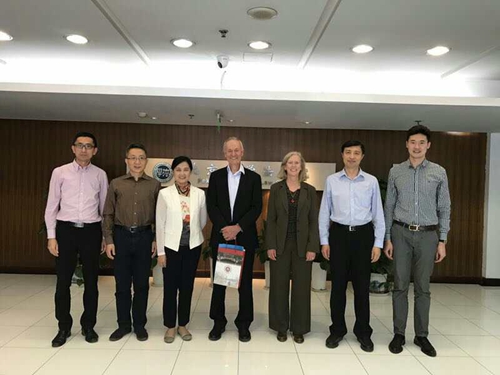
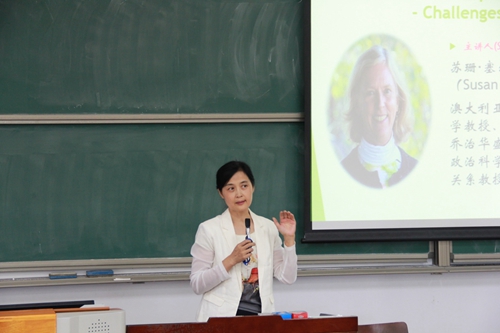
Professor Zhang Ping
Professor Peter Drahos’ topic is economies of the 21st century – circular, green, low carbon, sustainable and innovative: what role for intellectual property rights? He started with the phenomena of environmental, technical and economic crisis, pointing out that the development of the 21th century’s economies should be supposed to be circular and sustainable. Taking the industry ecosystem at Kalundborg, Denmark as an example, Professor Drahos analyzed how the ecosystem works, indicating that the key to break the trilemma between climate change, energy security and competitiveness development is innovation. Professor Drahos believed that developing countries had better propel multiple innovation, including open innovation, user innovation, soft innovation, collaborative innovation, frugal innovation, indigenous innovation and common innovation. But in reference to issues like “Does multiple innovation means more exclusive rights?” Professor Drahos views that the social welfare could be maximized only when we keep a good balance between IP protection and public interests.
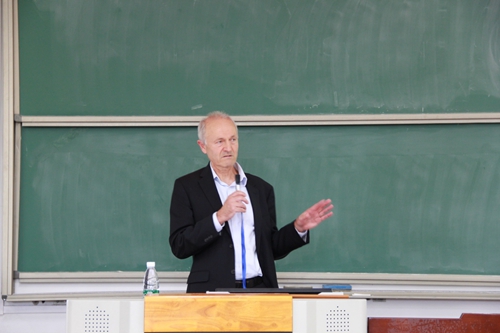
Professor Peter Drahos
After the brilliant lecture of Professor Drahos, Professor Susan Sell brought her lecture: Intellectual Property as Public Policy- Challenges and Trends. Professor Susan considered intellectual property protection has become one of the most important areas of global regulation. It reaches deeply into many aspects of commerce, law, health, education, technology, innovation, human development, culture, competition, agriculture and environmental protection. The main purpose of IP protection is promoting technology transfer, agriculture development, culture dissemination, public health and environment stability. And now, the trend of intellectual property right protection strength is transforming into TRIPs-plus from TRIPs. Professor Susan compared TRIPs-plus as the chase between Tom and Jerry. She compared Industry associations, multinational firms, USTR, OECD and WIPO as Tom who wants more powerful protection of IP while developing countries, NGOs and some firms (generics, computer equipment manufacturers, lately IT) as Jerry who prefers less powerful IP protection. In the time of TRIPs-plus, we are facing the challenges from HIV/AIDS crisis, abusive monopoly power, oligopolistic markets, ISDS and climate change. But this is also a world filled with opportunities. Professor Susan advised that China should grasp the opportunities to develop a robust environment of the public investment, address human development, promote technology transfer, use TRIPS flexibilities (i.e., compulsory licensing, parallel importing and international exhaustion), find sui generis approach to plant variety protection and formulate policies to prevent abuses of monopoly power to promote multiple innovation.
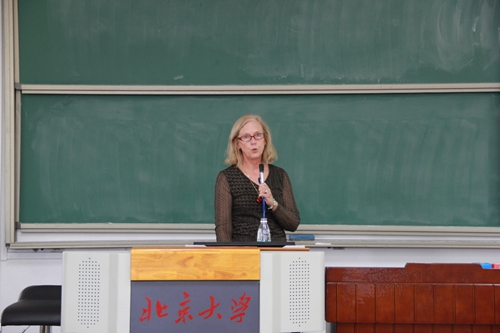
Professor Susan Sell
After the lectures, Prof. Ken Shao of the University of Western Australia made a wonderful evaluation in Chinese, and made a concise summary of the core views, background and context of the two foreign experts’ lectures and the international trend. He pointed out that the two foreign experts have the great care for the human rights and the development of human rights in developing countries, and their views are leading and authoritative in the world, and deserves deep thinking and earnest study by Chinese young people. He also pointed out that the research of the two professors for decades showed that the Chinese people should no longer blindly follow the West, only when we rediscover the vivid creativity of our traditional culture, can we find the confidence of building a better China in the global framework and discover cultural consciousness.
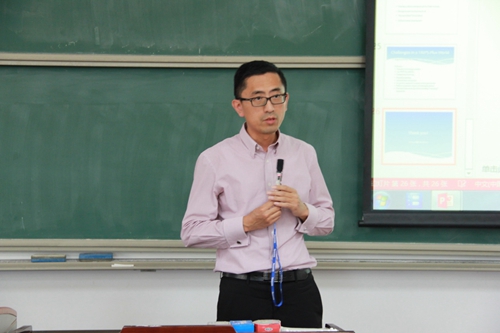
Professor Ken Shao
Q&A session began after a short break. Participants scrambled to communicate with two professors and posed their questions. Professor Drahos and Professor Susan replied these questions patiently.
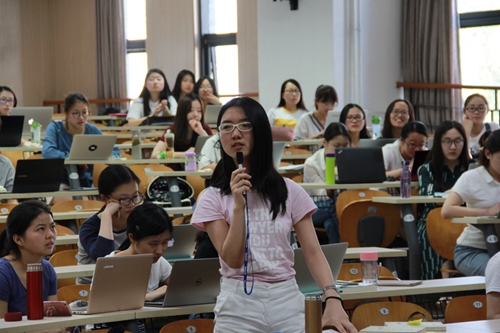
Q&A session
Peter Drahos, senior statesman global regulation and development, professor of Australian National University, chair professor of Commercial Law Research Centre of University of London, barrister. He has published the Philosophy of Intellectual Property Right (Dartmouth Press, 1996; the Chinese version was published by Commercial Press). Global Commercial Regulation (Cambridge University Press, co-authored with John Braithwaite, 2000). Information Feudalism: Who controls the knowledge economy? (Earthscan Press, co-authored with John Braithwaite, 2002; the Chinese version was published by Intellectual Property Press). Global Knowledge Governance (Cambridge University Press,2010; the Chinese version was published by Intellectual Property Press).
Susan’s research interests include international political economy, trade, economic development, intellectual property, and investment. She focuses on the global governance of public health, food sovereignty, education and climate change. She has published a number of books, including Private Power, Public Law: the Globalization of Intellectual Property Rights (Cambridge University Press, 2002); this was translated into and published in Chinese in 2007 and in Korean in 2009. With Deborah Avant and Martha Finnemore she co-edited Who Governs the Globe? (Cambridge University Press, 2010). In 2015-2016 she was appointed to the Expert Advisory Group for the United Nations Secretary General’s High-level Panel on Public Health and Access to Medicines.
Ken Shao, the Professor of University of Western Australia, Juris Doctor of University of London, the member of the Australia China Business Council (ACBC). His research interests include the philosophy of international intellectual property, innovation economy, Confucianism and cultural renaissance, Chinese culture and global governance. The main achievements include Professor William Alford of the Harvard University on far-reaching Chinese knowledge governance of traditional Weberian cultural historical view. He is good telling Chinese stories from a unique micro cultural perspective. His high-level Chinese law course has trained hundreds of elite talents in all fields for many years.



